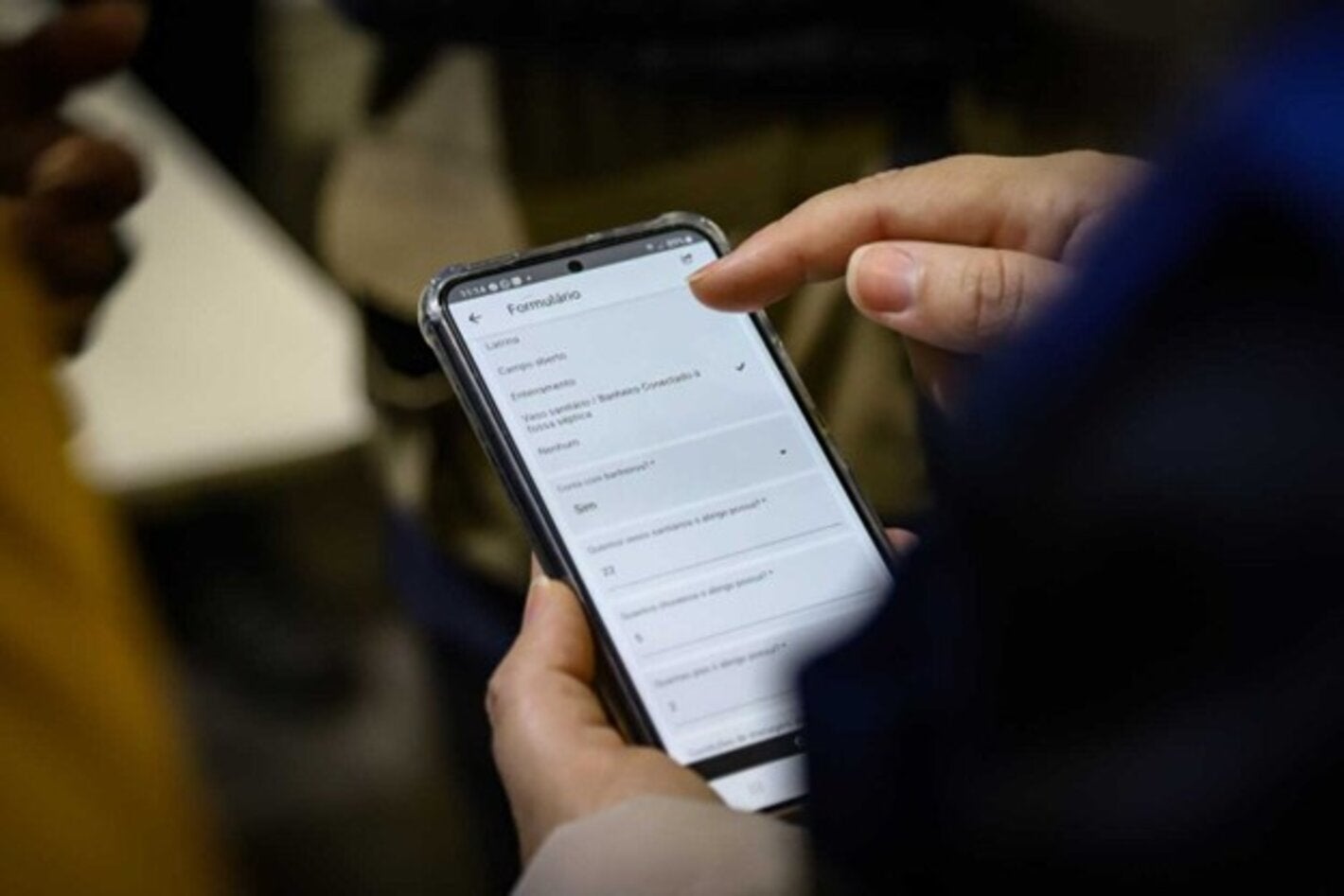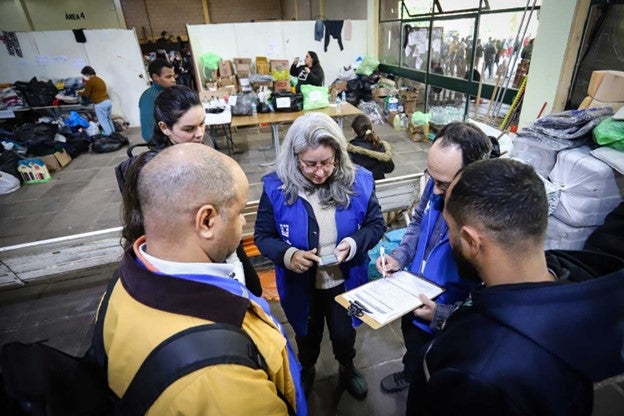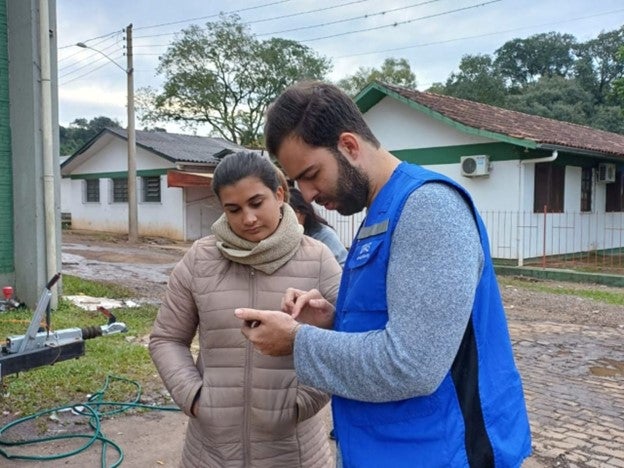
Brasilia, June 17, 2024 – From the end of April to May this year, the southern Brazilian state of Rio Grande do Sul was hit by heavy rains which caused widespread flooding, leaving 478 towns under water. Almost 3.4 million people were affected and 179 people died.
Since then, the Pan American Health Organization (PAHO) has worked alongside the Ministry of Health of Brazil, the Rio Grande do Sul State Health Secretariat, the National Civil Defense and the Rio Grande do Sul Civil Defense to support the country in meeting the health needs of affected populations.
This includes support for the local emergency operations committee on the use of EWARS – a PAHO/World Health Organization (WHO) early warning, alert and response system. The aim of EWARS is to facilitate early detection and rapid response to pandemic-prone diseases of any origin, in situations where official systems are disrupted.
One of the most dangerous effects of flooding is the diseases that can arise due to stagnant and contaminated water, including acute diarrheal diseases and leptospirosis infections. Early detection and appropriate treatment are key to saving lives.
EWARS can be used via a cell phone app, where information is inputted, including on disease surveillance, community-based surveillance, environmental and ecological observations, and health-related behavioral information, among others.
On May 15, authorities began to use the early warning system in 15 Indigenous villages in Rio Grande do Sul, enabling them to detect outbreaks at their initial stages, as well as other health risks to the population.
The villages, which were selected in eight municipalities, including Porto Alegre, the state capital, were identified based on the criterion of being served by the National SUS Force, which is a Ministry of Health emergency cooperation program that responds to disease outbreaks and disasters.
To support the country in the use of EWARS, PAHO provided face-to-face and online training. Trainees from the State Health Department and the Ministry of Health’s Indigenous Department (SESAI) then continued to share this knowledge with other workers.
Supporting emergency response
In the aftermath of the flooding, PAHO provided vaccination support to Brazil, and facilitated the purchase of vaccines against hepatitis A, rabies, measles, mumps, rubella and meningitis, via the Organization’s Revolving Fund.
PAHO also worked with the Ministry of Health to provide risk communications material, including guidelines on seeking health care in flooded areas, actions to minimize risks, and recommendations for essential items to take in case of evacuation.
PAHO also donated 100 emergency health backpacks, containing anti-inflammatory, antipyretics and analgesic medicines; water purifiers; alcohol; dressings; compresses; and protective equipment such as goggles, gloves, masks and aprons; as well as a blood pressure monitors, thermometers, and stethoscopes, among other items.
The content of the backpacks can be used for a variety of disaster-related health issues, including infection control, diagnostics, trauma care and personal protection tools.
PAHO continues to work with countries in the Americas to provide technical cooperation and support the prevention, control and response to disasters, outbreaks and other health emergencies.





